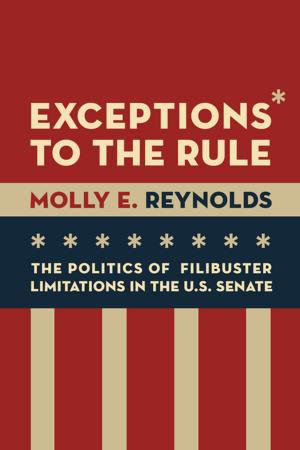Monnet's Brandy and Europe's Fate
A Determined Frenchman's Vision of Integration Serves as a Guide to Ending the Eurozone Crisis
Business & Finance, Economics, International Economics| Author: | Strobe Talbott | ISBN: | 9780815726074 |
| Publisher: | Brookings Institution Press | Publication: | February 10, 2014 |
| Imprint: | Brookings Institution Press | Language: | English |
| Author: | Strobe Talbott |
| ISBN: | 9780815726074 |
| Publisher: | Brookings Institution Press |
| Publication: | February 10, 2014 |
| Imprint: | Brookings Institution Press |
| Language: | English |
The past five years have been turbulent for the eurozone. Yet leaders such as Angela Merkel and François Hollande are determined to keep The European Project intact, and even among one-time critics there is a broad consensus that the eurozone will have to hang together. Strobe Talbott introduces the extraordinary life and vision of Jean Monnet-the man credited as the architect of European unity. Monnet died in 1979, long before the euro went into circulation, and his relevance today is all the more striking in light of his idiosyncratic career. He was born in 1888 to a long line of brandy artisans. He had no formal training as an economist, yet he is ranked alongside Keynes. He was never elected to public office, and his fellow countrymen sometimes mocked him as the great American.” Ironically, some believed that Monnet’s arguments were particularly effective with FDR, and later speculated that they might even have helped shorten World War II by a year. In this essay, Talbott demonstrates how Monnet’s vision of integration may serve as a guide to ending the current eurozone crisis. With minds in key capitals now focused on cobbling together institutional measures of the sort that Monnet believed necessary for monetary union, his vision of a united Europe may well survive and, over time, succeed.
The past five years have been turbulent for the eurozone. Yet leaders such as Angela Merkel and François Hollande are determined to keep The European Project intact, and even among one-time critics there is a broad consensus that the eurozone will have to hang together. Strobe Talbott introduces the extraordinary life and vision of Jean Monnet-the man credited as the architect of European unity. Monnet died in 1979, long before the euro went into circulation, and his relevance today is all the more striking in light of his idiosyncratic career. He was born in 1888 to a long line of brandy artisans. He had no formal training as an economist, yet he is ranked alongside Keynes. He was never elected to public office, and his fellow countrymen sometimes mocked him as the great American.” Ironically, some believed that Monnet’s arguments were particularly effective with FDR, and later speculated that they might even have helped shorten World War II by a year. In this essay, Talbott demonstrates how Monnet’s vision of integration may serve as a guide to ending the current eurozone crisis. With minds in key capitals now focused on cobbling together institutional measures of the sort that Monnet believed necessary for monetary union, his vision of a united Europe may well survive and, over time, succeed.















